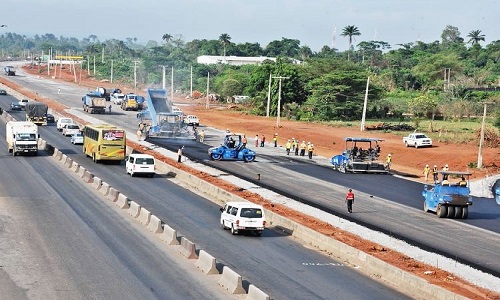 Nigeria requires N23 billion annually to meet its infrastructure financing needs, an official has disclosed.
Nigeria requires N23 billion annually to meet its infrastructure financing needs, an official has disclosed.
Adekunle Oyinloye, the Chief Executive of The Infrastructure Bank, TIB, who disclosed this at a press conference in Lagos at the weekend, said that infrastructure decay in the country was massive and required huge funding.
He said that the Federal Government, through the National Planning Commission, once came up with a need of N30 trillion for infrastructure provision in the next 30 years.
Oyinloye said that the current reality was that government could no longer develop the infrastructure alone and needed the partnership of the private sector.
“Government has the responsibility to provide infrastructure, but does not have enough resources to do it.
“Government money can never be enough to develop the infrastructure.
“The government is doing everything within its reach to engage the private sector in the legal regulatory area to ease doing business so that private sector can come in and close the gap.
“This is important as the crude oil price continues to drop at the international market.
“This means that the government must deliberately befriend the private sector to close the gap in infrastructure funding”, he said.
Mr. Oyinloye said that the Public-Private Partnership (PPP) was now the best option available to develop the infrastructure in the country in view of declining crude oil earnings.
He said that there were ways to structure deals to ensure iron-cast protection of private investors in PPP.
The bank chief executive said that once private investors were sure of the safety of their investments, they would be more willing to release their funds.
“The first principle in PPP is the principle of fairness and our job is to do that. Once a project is bankable, you can always find financiers”, he said.
Mr. Oyinloye, however, said that a major challenge in sourcing funds was the unstable exchange rate of the naira, stressing that many resources were being mobilised abroad.
He said that the bank was devising means to address the problem and attract funds to the country.
He also said TIB would create an asset management subsidiary to manage portfolios of private investors in infrastructure projects in the country.
Mr Oyinloye said that the TIB Assets Management Company would assist potential investors to manage their investments in infrastructure more professionally.
He said that funds available to the company would be better managed by professional fund managers or made available on the capital market as quasi or private equities.
He said that the bank’s duty in the whole arrangement would be to see that projects were well conceptualised, dissected and de-risked to make them bankable.
The bank chief executive said that the benefits of an assets management company was to give investors clarity as to the timeframe on when to go in and to exit from investments.
“Our job as infrastructure bank is to take them through that process and create bankable projects with clear exit for debt providers, investors, quasi equities and others.
“We are so friendly with those own funds and who are looking for where to invest with a clear clarity as to when and how to exit.
“Our shareholders’ funds is just to enable us to run when we have ideas initiated by the bank.
“The funds provide the initial capital for the bank to run projects such that fellow investors would come in”, he said.
Mr. Oyinloye said that some investors had already shown interest in the rehabilitation of the Lagos-Ibadan Expressway.
He said the Lagos-Ibadan Expressway, established in 1978, was the first tolled road in the country, but was not operated as one.
The TIB boss said that if it had been operated on the concept of a tolled road, the proceeds would have been used for its rehabilitation and continuous maintenance.
He said that the rehabilitation of the road was now based on public procurement, considered to be the option that would not stop the project.
Mr. Oyinloye said that government took the option because of the concern on how the road rehabilitation would be delivered in four years.
“Then the idea was how was government was going to fund it.
“Government was determined to fund it from the budget, but at that time government did not know that the price of oil would fall.
“As a development finance institution, owned by government and private sector, we were concerned about how the road would be delivered in four years.
“We then decided that may be this is our first opportunity to support the government to deliver on its promises”.
(NAN)




